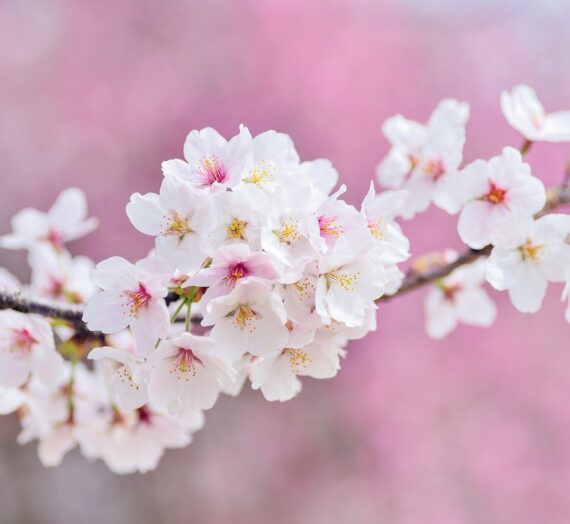THE SLOW LIFE MOVEMENT: HAPPINESS BEFORE ECONOMIC EFFICIENCY
„Do you feel restless when you’re not busy? Do you feel uneasy when you’re not working hard? You don’t have to live that way!”. This is the unexpected message on the back of business cards of employees at the Iwate Prefectural Office.
Iwate Prefecture issued a „Take-It-Easy Declaration” in 2001 to launch a movement away from the prevailing ethos of economic efficiency. Iwate’s case is explained below.
„Let’s make our life in the new century more human, more natural, and more simple” – these ideas indicate Iwate’s ideal, epitomized by its „take-it-easy” slogan. For example, Iwate’s approach to buildings is to conserve traditional wooden houses that stand in harmony with nature, rather than to cut forests to make way for state-of-the-art buildings. Such a sense of harmonious coexistence between nature and humans is highly valued in Iwate’s take-it-easy movement.
Iwate tried to reach a larger audience by placing national newspaper advertisements for its „Take-It-Easy Declaration.” The slogan, encouraging an intentional shift away from contemporary values emphasizing economic efficiency, has been well received by people across the nation.
Not only Iwate but also other local governments are campaigning for a more relaxed and comfortable lifestyle instead of the current lifestyle characterized by efficiency and speed. In the last couple of years, increasing numbers of municipalities have joined this movement, for example, by adopting „Slow Life” as their slogan and by assigning a „Slow Life Month” for special events to raise residents’ awareness of slower lifestyles.
„In the late twentieth century, Japan valued and pursued the „fast, cheap, convenient, and efficient” life that brought us economic prosperity. However, it also caused problems such as dehumanization, social ills, and environmental pollution. We would like to move forward, with the slogan „Slow Life,” to achieve „slow, relaxed and comfortable” lifestyles, and shift from a society of mass production and mass consumption, to a society that is not hectic and does cherish our possessions and things of the heart.”
„Humans live about 700,800 hours (assuming an average life expectancy of 80 years), of which we spend about 70,000 hours working (assuming we work for 40 years). The remaining 630,000 hours are spent on other activities, such as eating, studying, and leisure, including 230,000 hours sleeping. Until now, people often focused their lives on these 70,000 hours of labor, devoting their lives to their companies. However, with the „slow life” principles, we would now like to pay more attention to the 630,000 hours outside of work to achieve true happiness and peace of mind.”
„The practice of the „Slow Life” involves the following eight themes:
SLOW PACE: We value the culture of walking, to be fit and to reduce traffic accidents.
SLOW WEAR: We respect and cherish our beautiful traditional costumes, including woven and dyed fabrics, Japanese kimonos and Japanese night robes (yukata).
SLOW FOOD: We enjoy Japanese food culture, such as Japanese dishes and tea ceremony, and safe local ingredients.
SLOW HOUSE: We respect houses built with wood, bamboo, and paper, lasting over one hundred or two hundred years, and are careful to make things durable, and ultimately, to conserve our environment.
SLOW INDUSTRY: We take care of our forests, through our agriculture and forestry, conduct sustainable farming with human labor, and ultimately spread urban farms and green tourism.
SLOW EDUCATION: We pay less attention to academic achievement, and create a society in which people can enjoy arts, hobbies, and sports throughout our lifetimes, and where all generations can communicate well with each other.
SLOW AGING: We aim to age with grace and be self-reliant throughout our lifetimes.
SLOW LIFE: Based on the philosophy of life stated above, we live our lives with nature and the seasons, saving our resources and energy.”
The Italian-born slow food movement has spread into Japan, which is now suffering from the aftereffects of rapid economic expansion and the current economic recession. Japanese people have begun questioning themselves about what matters most to them. More and more are now realizing that they prefer a slow, happy life to a life based on competition, economic efficiency and speed, and this realization is energizing Japan’s slow life movement. This trend is a step toward creating a sustainable society, shifting away from the era of mass production, mass consumption, and mass disposal. Some readers may find it hard to believe that such a movement is happening in what has become seen as Corporate Japan.
Źródło artykułu: JFS Newsletter. Licencja CC BY-NC-SA 3.0.
Definicje i przykłady zdań pochodzą ze słownika Cambridge Dictionary.
VOCABULARY
restless /ˈrest.ləs/ – unwilling or unable to stay still or to be quiet and calm, because you are worried or bored;
ruchliwy, niespokojny, niecierpliwy
uneasy /ʌnˈiː.zi/ – slightly worried or uncomfortable about a particular situation;
skrępowany, czujący się niezręcznie
prevailing /prɪˈveɪ.lɪŋ/ – existing in a particular place or at a particular time;
obecny, przeważający, dominujący
epitomize /ɪˈpɪt.ə.maɪz/ – to be a perfect example of a quality or type of thing;
być doskonałym przykładem czegoś
state-of-the-art /ˌsteɪt.əv.ðiːˈɑːt/ – very modern and using the most recent ideas and methods;
najnowszy, najbardziej zaawansowany
shift /ʃɪft/ – a change in position or direction;
zmiana
emphasize /ˈem.fə.saɪz/ – to show that something is very important or worth giving attention to;
podkreślać, zaakcentować
awareness /əˈweə.nəs/ – knowledge that something exists, or understanding of a situation or subject at the present time based on information or experience;
świadomość
prosperity /prɒsˈper.ə.ti/ – the state of being successful and having a lot of money;
pomyślność
hectic /ˈhek.tɪk/ – full of activity, or very busy and fast;
intensywny
devote sth to sth / sb /dɪˈvəʊt/ – to give all of something, especially your time, effort, or love, or yourself, to something you believe in or to a person;
poświęcać coś czemuś / komuś
durable /ˈdʒʊə.rə.bəl/ – able to last and be used for a long time without becoming damaged;
trwały, wytrzymały
sustainable /səˈsteɪ.nə.bəl/ – causing little or no damage to the environment and therefore able to continue for a long time;
zrównoważony
ultimately /ˈʌl.tɪ.mət.li/ – finally, after a series of things have happened;
w końcu, wreszcie, nareszcie
aim /eɪm/ – to intend;
zamierzać, mieć na celu
grace /ɡreɪs/ – a quality of moving in a smooth, relaxed, and attractive way;
wdzięk, gracja
self-reliant /ˌself.rɪˈlaɪ.ənt/ – not needing help or support from other people;
samodzielny
disposal /dɪˈspəʊ.zəl/ – the act of getting rid of something, especially by throwing it away;
usuwanie, wywóz




